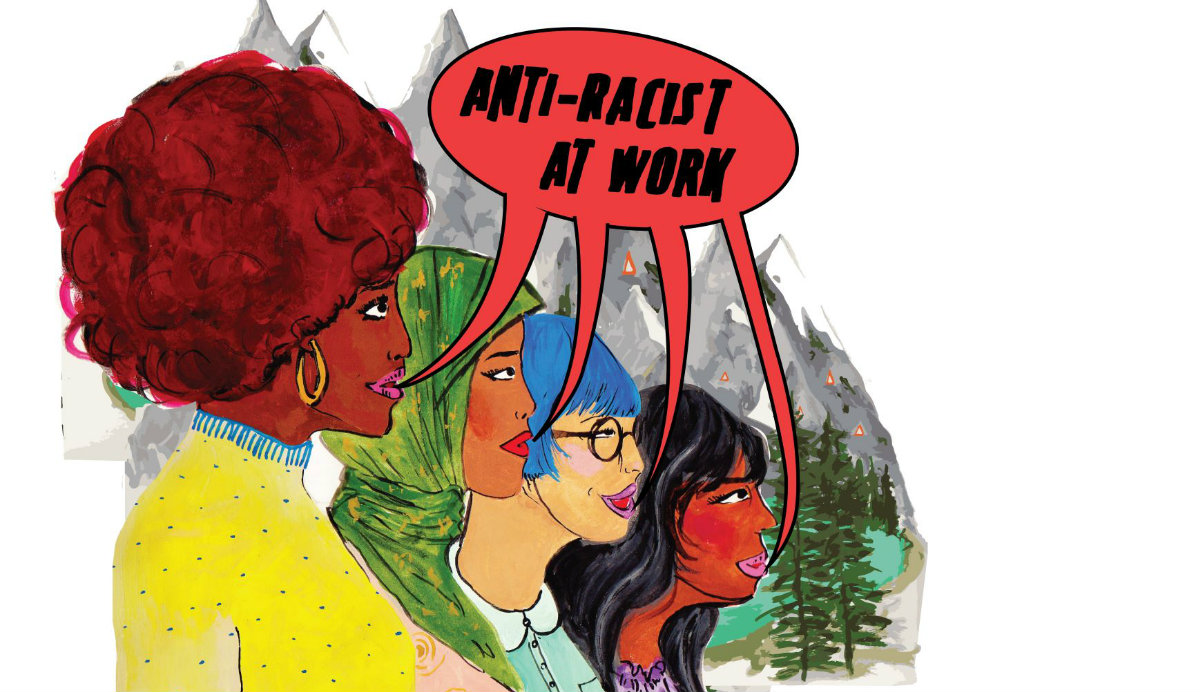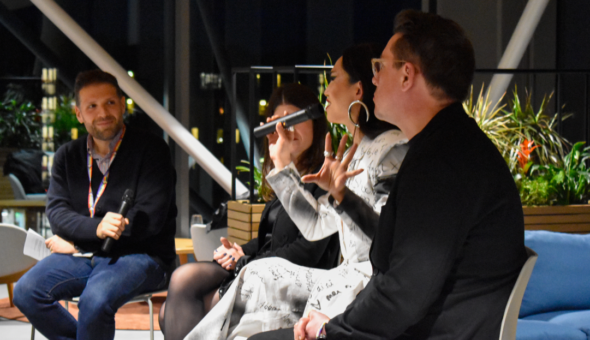October is Black History Month in the UK, a time during which we celebrate the achievements of Black people throughout history and are reminded to reflect on the inequalities that continue to affect people of colour. Whilst diversity and inclusion are taught as part of many business and management programmes, we often fail to interrogate our own classrooms as spaces in which the dominance of whiteness is reproduced. This post, written by the international collective Building the Anti-racist Classroom (BARC) (of which Deborah Brewis of the University of Bath School of Management is a member) outlines why business schools must play an active and strategic role in enacting change, and how the BARC project advances this agenda.
The movement to decolonise university curriculums has been gaining momentum in British institutions over the last year, but the movement to dismantle whiteness in higher education has largely been taking place outside of business schools. Business schools are key players in higher education, with some 120 universities offering business education in the UK alone. Such programmes are also highly diverse spaces, attracting the third highest proportion of students of colour after medicine and law. While we research diversity and teach it on the curriculum, our curriculums themselves are overwhelmingly white, dominated by Eurocentric knowledge and North American corporate practice. Students of colour and students from the Global South are largely asked to engage with content that has not been developed from, and therefore often does not reflect, their realities. This results in learning environments that exclude their experiences and voices, and that reproduce dominant forms of knowledge.
As academics we must also reflect critically on our own social positioning and privileges, and the ways they may impact students of colour and Global South students in our classrooms. Students of colour in business and management face a significant attainment gap which makes them less likely to achieve a 2:1 or First class degree. This is despite students of colour and white cohorts enrolling with the same qualifications. Conscious and unconscious biases, construct such students as less able, less networked and/or as lacking in aspiration: such stereotypes are harmful and must be challenged at an institutional level.
We also operate within an overarching context where staff involved in teaching and managing business education are predominantly white, and usually male. Even though the numbers of home students of colour grow year on year, this has not been mirrored in the demographic of staff, with academics of colour only having increased from 4.8% in 2004 to 6.2% in 2015. Staff of colour/Global South staff, particularly women, take on a disproportionate amount of labour in higher education that is feminised, involving caring or emotional work, and which is under-recognized and undervalued. It means that people from these groups face serious impediments with publishing, recognition and progression; they are over-represented in lower academic pay grades, in precarious contracts, and in professional services roles. Whilst the labour performed in these roles is essential to our institutions, these inequalities mean that staff of colour/Global South staff tend to be more junior and as such have less control and power over the direction of their work as well as institutional strategy.
Working and educating in this context, it is critical that business and management school engage actively in talking about race. Academics, professional staff, and students who make up the business school need to collaborate to develop and implement strategies that promote anti-racism. Collective action in this regard has already begun. In 2017 the Decolonising Alliance was formed to advance this very project, and has served as a community within which individuals and collaborators have taken strategic action and made interventions both in research and institutions. The BARC collective aligns itself with the Decolonising Alliance’s broader remit: to create opportunities for the most marginalised in management and organization studies by leading initiatives that address inequalities in the field.
Building the Anti-Racist Classroom will be hosting a 2-day intensive intersectional workshop that brings together staff and doctoral students of colour and anti-racist allies to engage with these issues. Influential thinkers on anti-racism Professor Shirley Ann Tate and Professor Goldie Osuri will give keynote addresses to provoke discussion about the impact we can have in our own pedagogy and institutional contexts, and fuel the development of tools to facilitate this. An exciting evening programme is curated by playwright, performer, producer, director, researcher, facilitator and teacher Dr Mojisola Adebayo.
The project of Building the Anti-racist Classroom represents a significant moment in the history of business and management education by collectively organising around issues of race and foregrounding the voices of women of colour. Whilst this represents an important step forward, contemporary anti-racist theory reminds us that such events must form part of sustained critical reflection and intervention and that the transformation of the business school requires the continuous cultivation of relationships with other scholars, students, and professional staff across higher education.
Our next upcoming workshop takes place on Thursday 18-Friday 19 October 2018 at Queen Mary University of London.
Header image design created for BARC by Maria D'Amico, used with permission of the artist
Respond



